Our recent seminar in Kampala, Uganda, brought the truth of Scripture up against human traditions in a dramatic way.
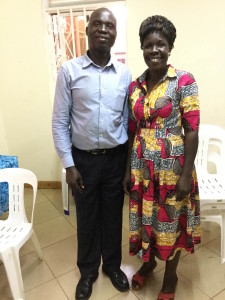
The seminar, held this month, was the first one organized by Joyce Ouko, our new Empower Kampala Chapter President, and her committee. Joyce was named as the new president earlier this year after Margaret Kiswiriri passed away in December.
Africa Program Director Frank Tweheyo helped teach the seminar, which was held at the Worldshine offices in Ntinda, Kampala.
Here is an edited version of Frank’s report about the seminar and its results. He reports that people are eager for change, but just had no means to navigate it. Our seminar brought hope of change, a chance to challenge man-made traditions, and the promise of freedom in Christ.
The participants came from many parts of Kampala, especially from Banda, where Joyce and her husband Julius (also a member of the committee) pastor a church.
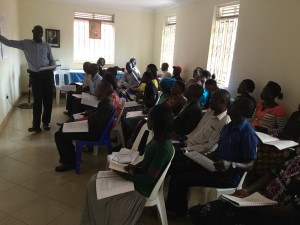
Many of the participants were from the Luo community, located in the “Acholi Quarter” of Banda. Luo/Acholi people live in this community because they were displaced from Northern Uganda in the Joseph Kony insurgence of the 1990’s to 2006. Many don’t have homes to return to, so they have stayed in Kampala, doing odd and menial jobs, etc.
While they have changed locations, they brought with them cultural practices that treat women more like property than people.
During the seminar, we always ask participants to name the burdens of women in their culture. The responses in this particular group showed us just how great the need is for Empower. These are some of the rituals and traditions that affect the Luo, Acholi and Langi women:
- Tweo Lao: A ritual that subjects women to expose their private parts before elders and the family they have married in so that the family may know “the total you.” Mike Kinyera, a pastor in Kampala but from that community, said because he is born again, he refused his wife to be subjected to that shameful treatment, but because he refused, his family ostracized him.
- A woman is considered the property of her clan. She must therefore be subjected to several tests in order to belong:
1- She must carry a 40-liter saucepan of water, called ” Nywal Ber,” from the village well (water source or protected spring) to the home. This is to prove her strength.
2- She must live with her husband’s family for 3 to 6 months during which time she is subjected to work very hard feeding the whole family. This is the worst time of her life. Remember, at some stage, the mother-in-law passed through the same, so this is a time for revenge of sorts. The woman also has to visit with her father-in-law until such time that she gets pregnant (which means no one knows whether the child belongs to the father in law or the husband).
3- She is forbidden to eat chicken, fish, insects, and other sources of protein, but she is tested to see if by any means she will eat on them so that she is heavily punished.
4- She is subjected to hard labor cooking for the whole family, has to weed the garden, bring water for all people to bathe, put it in the bathroom for them, cook for all, fetch firewood, etc.
5- She has no individual human rights. Because a woman is a clan property, many people have to contribute to the dowry price. This gives them right of ownership including sleeping with the woman. Pastor Mike told us that he had to look for his own dowry price so that no one lays claim on his wife.
We had other women from Ankole, Baganda and Bakiga who also gave us their burdens, but they are not so pronounced as the Luo people. Baganda women have to kneel for every elder while greeting or serving them food, while the Bakiga women have to be given a big fallow ground to dig alone to prove her strength.
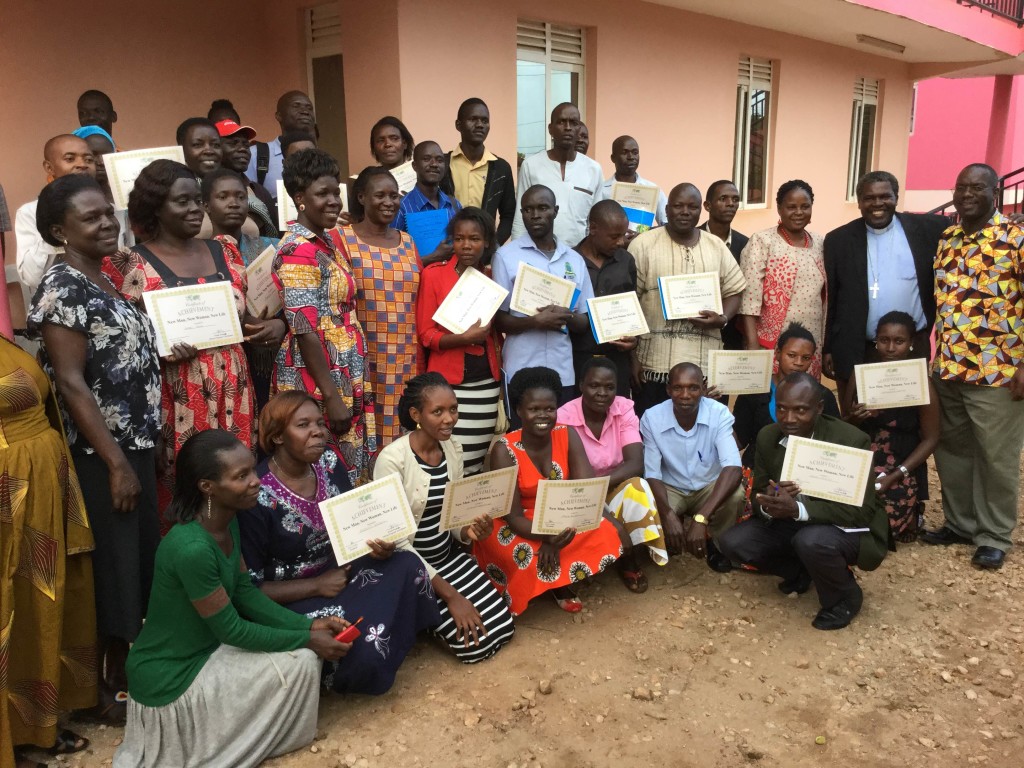
As often happens in our seminar, the participants were surprised to learn what the Bible actually says about men and women. Usual surprises like ” woman was not cursed, both of them were in the garden, what it means by headship and submission ” were the highlights of the seminar.
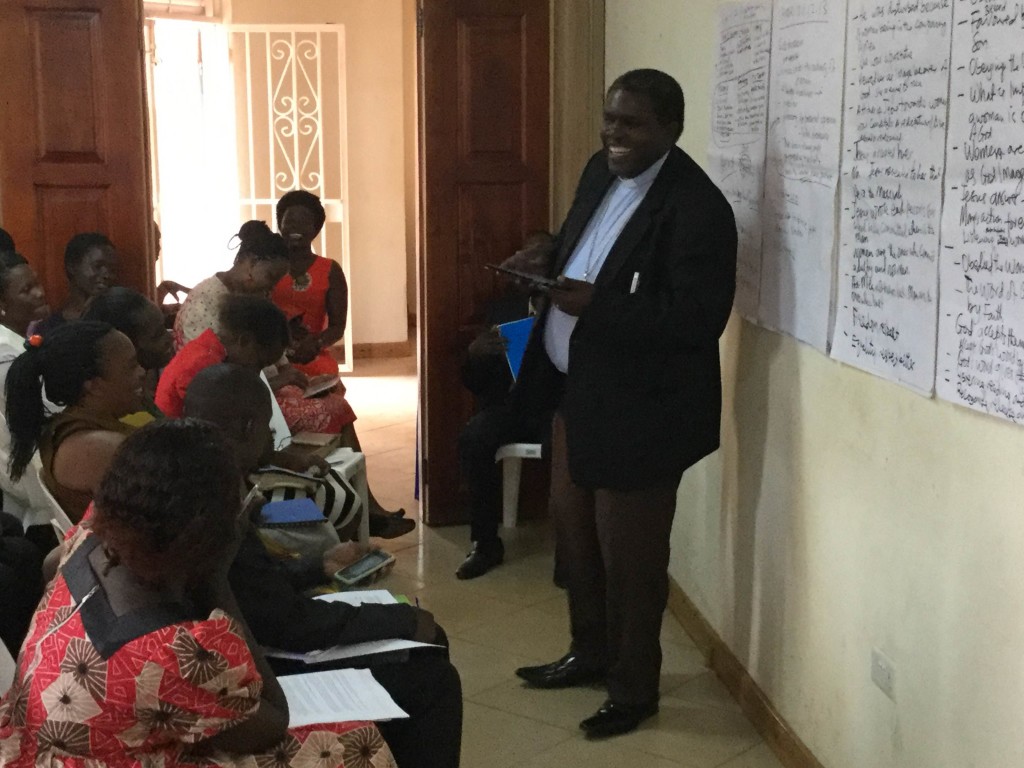
Dr. Medad Birungi came at the close of the seminar and officially closed it with a great exhortation about marriage. He talked of sexual integrity, excellency, the importance of the marriage bed (Hebrews 13), effective communication at home, permanency of marriage (no divorce), confidentiality, regularity, faithfulness as things that will ultimately make us “new man, new woman.”
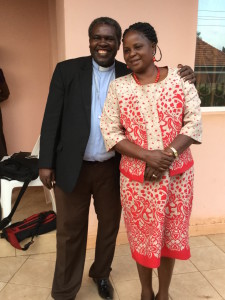
The participants promised to do things differently, and that is the joy of these seminars. People are tired of repressive cultures, they just sometimes lack an avenue for change. Our seminar provides that avenue.
Two days were too few, the participants called for another seminar very soon.
We cannot put on life-changing seminars like this one without your help. We greatly appreciate your support. Thank you!
